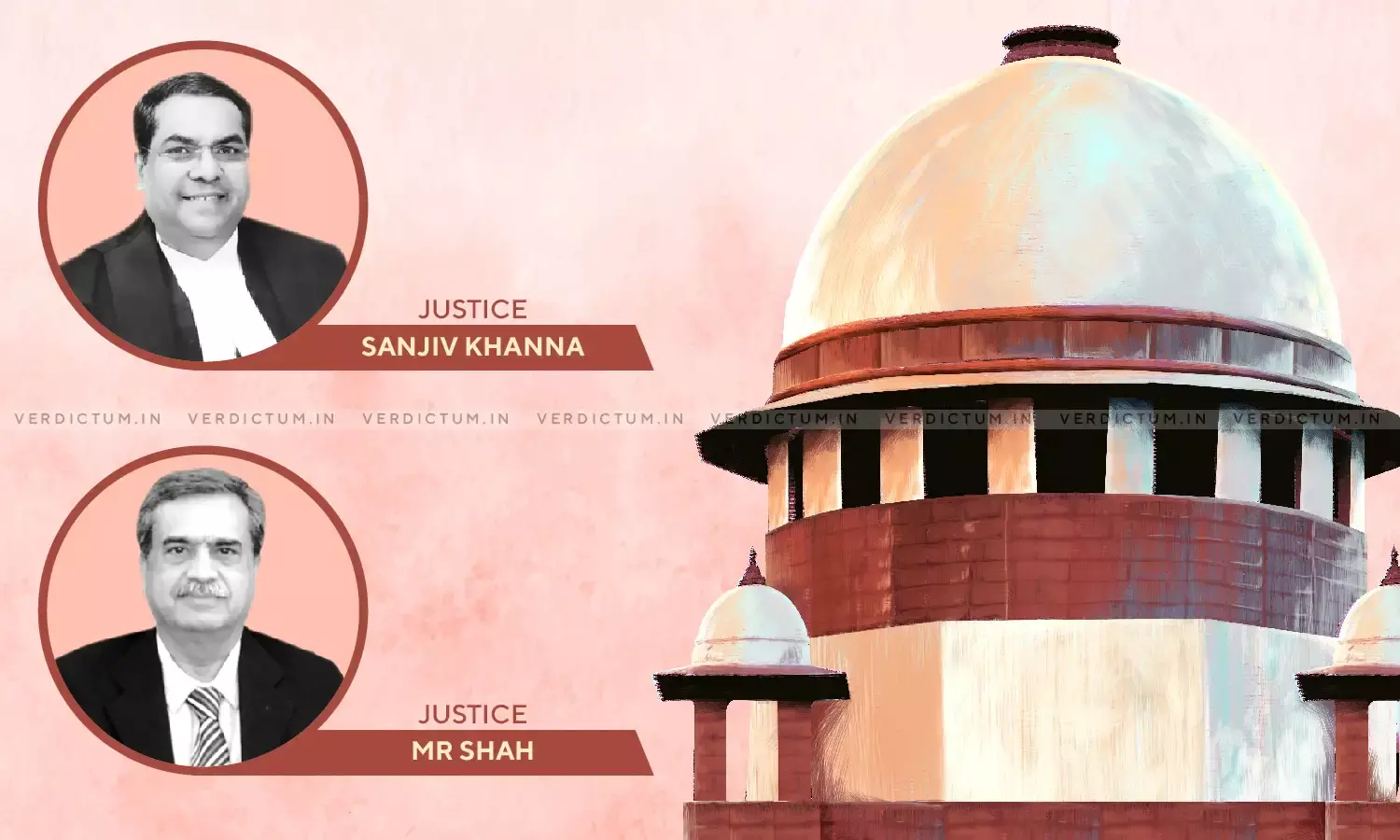Allegations Of Fraud Without Specific Particulars Not Adequate To Escape Bar Under Section 34 Of SARFESI Act – Supreme Court

A two-judge Bench of Justice MR Shah and Justice Sanjiv Khanna has held that mere allegations of fraud which are made without any particulars are not sufficient to get out of the bar under Section 34 of Securitisation and Reconstruction of Financial Assets and Enforcement of Security Interest (SARFESI) Act, 2002. The Court upheld the order rejecting the plaint as barred under Section 34 of the SARFESI Act.
Senior Advocate Dr. AM Singhvi appeared for the Appellant while Senior Advocate Mr. Shyam Divan and Senior Advocate Mr. Huzefa Ahmadi appeared for the Respondents during the proceedings before the Court.
An appeal was preferred by the Appellant-Original Plaintiff (Guarantor) before the Supreme Court assailing the judgment of Madras High Court which had dismissed the appeal of the Appellant. The High Court had rejected the plaint/suit filed by the Appellant on the ground that the suit was barred under Section 34 of the SARFESI Act.
In this case, subsequent to the discharge of the liability of payment of loan through an approved resolution plan, an assignment agreement was executed between Respondents 1 & 2. On the basis of the assignment agreement, Respondent 1 initiated proceedings against the Appellant-Plaintiff under Section 13 (2) of the SARFESI Act and demanded payment of INR 587, 10, 08,309 due under the rupee term loan agreement.
The Appellant contended that pursuant to the resolution plan, all the claims of the financial creditor stood extinguished since the Corporate Debtor had already paid all the liabilities.
Thereafter, the Appellant instituted a suit before the Madras High Court which had dismissed the suit on the ground that the suit was not maintainable in view of Section 34 of the SARFESI Act. Also, the Division Bench of the High Court dismissed the appeal.
The Appellant contended before the Supreme Court that the assignment agreement was fraudulent and sought to declare the same as null and void.
Further, it was argued that since the suit filed alleged 'fraud' the bar under Section 34 of SARFESI Act would not apply.
Dr. Singhvi argued that not only the assignment was null and void and fraudulent but also, the assignee cannot be said to be a secured creditor so far as the Appellant was concerned.
While the Respondent argued that the allegations of 'fraud' were nothing but clever drafting only to bring suit maintainable before the Civil Court despite the bar under Section 34 of SARFESI Act.
Also, no further particulars were pleaded in support of allegations of 'fraud' by the Appellant as required under Order VI Rule 4 of CPC, contended the Respondent.
The Apex Court observed, "It is required to be noted that except the words used 'fraud'/'fraudulent' there are no specific particulars pleaded with respect to the 'fraud'."
"It appears that by a clever drafting and using the words 'fraud'/'fraudulent' without any specific particulars with respect to the 'fraud', the plaintiff – appellant herein intends to get out of the bar under Section 34 of the SARFAESI Act and wants the suit to be maintainable," the Bench opined.
Additionally, the Court added, "As per the settled preposition of law mere mentioning and using the word 'fraud'/'fraudulent' is not sufficient to satisfy the test of 'fraud'. As per the settled preposition of law such a pleading/using the word 'fraud'/ 'fraudulent' without any material particulars would not tantamount to pleading of 'fraud'."
While relying on the precedent, Bharat Dharma Syndicate vs. Harish Chandra (64 IA 146), the Court held that a litigant who prefers allegation of fraud or other improper conduct must place record precise and specific details of these charges.
Further, the Bench asserted, "By such a clever drafting the plaintiff intends to bring the suit maintainable despite the bar under Section 34 of the SARFAESI Act, which is not permissible at all and which cannot be approved."
"Even after the approved resolution plan against the corporate debtor still there shall be the liability of the plaintiff and/or the assignee can be said to be secured creditor and/or whether any amount is due and payable by the plaintiff, are all questions which are required to be dealt with and considered by the DRT in the proceedings initiated under the SARFAESI Act," the Court held.
The Court also added that the suit filed by the Plaintiff-Appellant was absolutely not maintainable in view of the bar contained under Section 34 of SARFESI Act.
Furthermore, the Bench also had that it would be open for the Appellant to initiate proceedings under Section 17 of SARFESI Act against the initiation of proceedings by the Respondent No. 1 under Section 13 inter alia on the ground –
i) That the assignee cannot be said to be secured creditor so far as the appellant is concerned; and ii) That there is no amount due and payable by the plaintiff-appellant herein on the ground that in view of the proceedings under IBC against the corporate debtor and the corporate debtor being discharged after the approved resolution plan, there shall not be any enforceable debt against the appellant.
In the light of these observations, the Court dismissed the appeal.
Click here to read/download the Judgment

